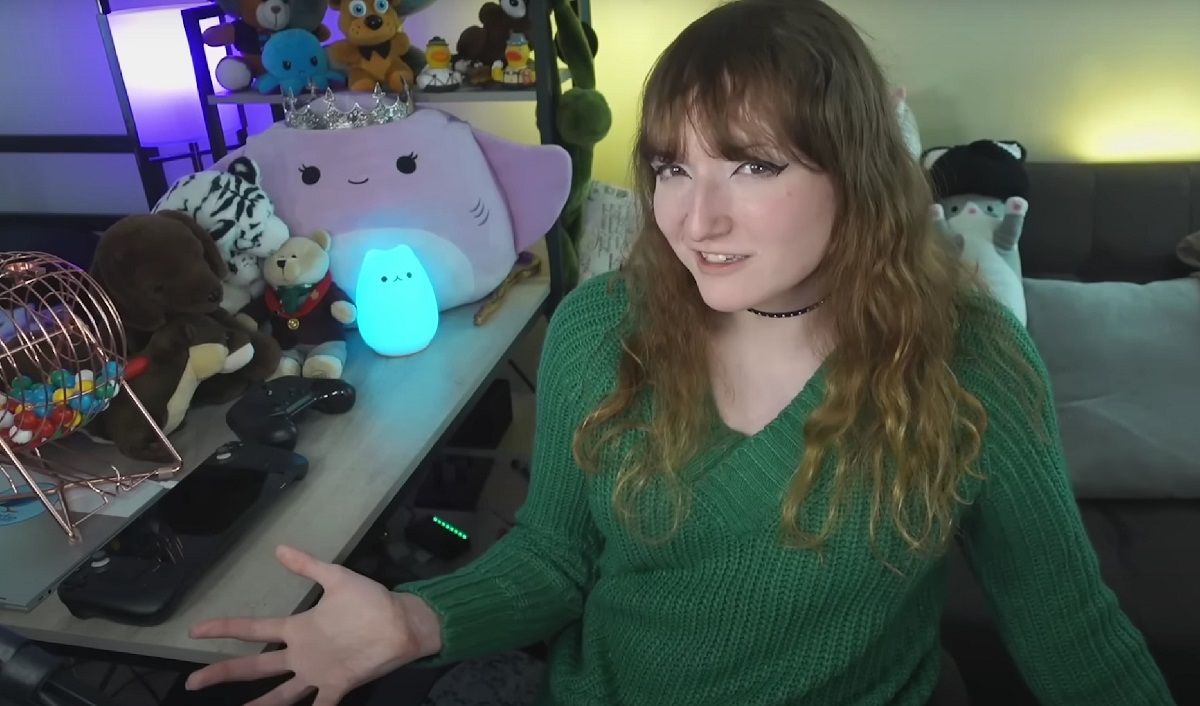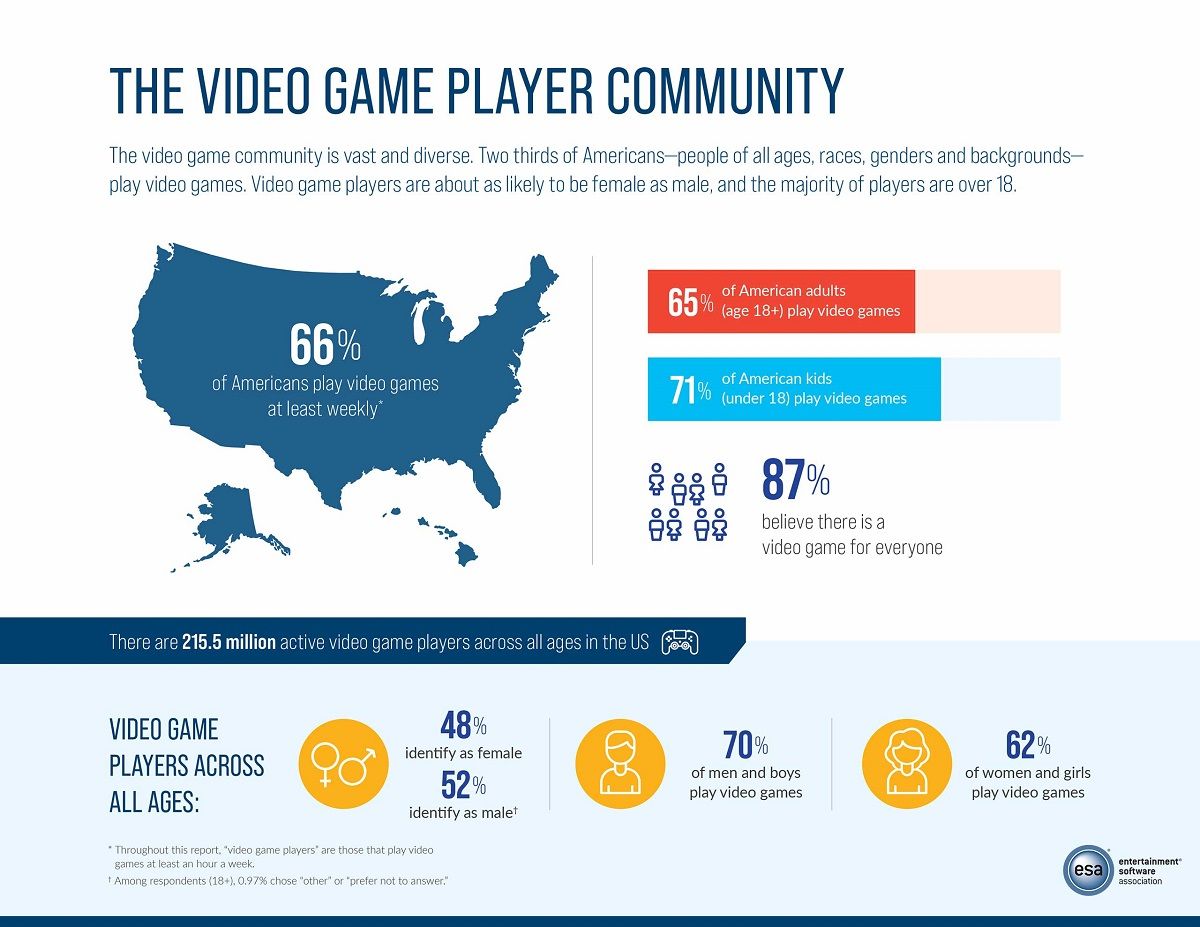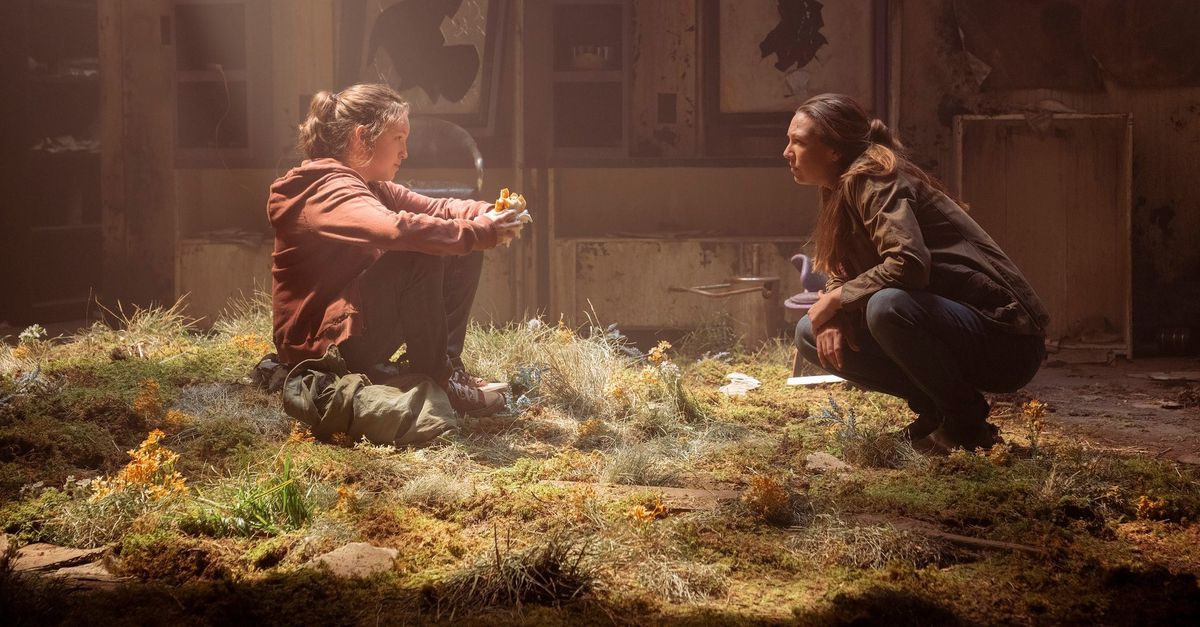Countdown to TLOU #12 ("Non-Gamers")
Statistically, most of the people who tune in to watch 'The Last of Us' will be gamers--because there are more gamers than people think!

No, you're not seeing things. This is "Countdown to TLOU #12."
"But what happened to #8-11?" I hear you ask.
I challenged myself to write a new essay every day, but as the days passed, that challenge added to other life stuff started to be a lot. My sleep has been erratic and I've become exhausted. Also, though slightly less importantly, in order to write 15 pieces, there were several "fluff" pieces I'd planned out, because there weren't 15 topics that I was genuinely jazzed about.
I've pulled back on posting to social media in large part because I realized that, despite the fact that I'm a professional writer, I'd been giving away so much writing for free. Things that could/should have been longer published pieces ended up being long Twitter threads or Facebook posts. And for what? To stay relevant? To "promote myself?" To remind people I'm a smart writer who has thoughts? So, I've been trying to use social media more mindfully and not run myself into the ground just to churn out "content." Especially just to earn another corporation money.
Why, then, would I run myself into the ground for my free newsletter that I started for fun? Why not just write about the topics that really interest me and made me want to have an excuse to write about The Last of Us in the first place?
So, that's what I'm doing. There are 3 days left until the show's premiere after today, and I'll be knocking out a couple more pieces between now and then. I hope you enjoy them!
And I can't wait to geek out with you all when TLOU premieres THIS SUNDAY!
Welcome to the intersection of Teresa & Video Games...
As we get closer to the premiere of The Last of Us on HBO, I've been hungrily sucking up any and all images, articles, interviews, reviews, and social media posts about the show, firmly on the hype train.
A sentiment I've heard repeated over and over again by fans of the TLOU games excited by the show is, "I can't wait until non-gamers see this!" I totally get what they mean. They likely have people in their lives who aren't as into--or maybe don't at all play--video games, and they're excited to have a shared frame of reference with those people. Something to enjoy together that allows these TLOU fans to show them what's possible narratively in video games; that allows these "non-gamers" to see what the fuss is about.
I, too, am excited for people who have certain preconceptions about what video games are, or who doubt the ability of a video game to affect someone emotionally to watch this show and, if they're moved by it, realize that it's so affecting not in spite of, but because of its source material.
However, when I started seeing this sentiment, the word "non-gamers" hit me weirdly for reasons I couldn't put my finger on at first. I knew what people were trying to say, but for some reason, "non-gamers" didn't sound right.

It wasn't until I saw this video by YouTuber heyitscara that the reason for my reaction started to crystalize. Cara makes videos about gaming--usually Paradox games (the company behind Crusader Kings, Europa Universalis, etc). While I've never played those games, my wife loooooves them (she's such a nerd about history, computers, and gaming, so these games hit her Geek Trifecta), and so she keeps up with Cara's take on stuff, and one day I watched this video over her shoulder.
The video is called, "Why don't girls play Paradox games, answered by a girl," and the main point of it is--of course girls play Paradox games! I'm a girl, and I play. But it was more nuanced than that. She gets that when people ask that, they know that some girls/women play these games, but they're wondering why they're predominantly played by boys/men.
And right here, I just need to stop and acknowledge that binary discussions like this inevitably erase the existence of non-binary and intersex people, and I fucking hate it. So, I'll try to use masc/femme where appropriate, because they apply to people of any gender, and that's closer to what people actually mean when they use men/women. [Please give me a holler if this is wrong, or if there's a better alternative!]
So, Cara went through a couple of other points, and then she brought up the thing that had been my first thought when she presented her topic: maybe it isn't that "no/few women play Paradox games." Maybe it's that they play, but because the Paradox game community is so driven by toxic masculinity, they keep their play to themselves. So we might not see them in Reddit threads, or at conventions or gaming events, but they're playing the fuck out of these games at home.
I was so glad she brought this up, because that's my assessment as well after nearly a decade as a pop culture writer traveling in geeky spaces. Gaming spaces have a strongly masculine vibe. The women I usually see navigating it well (not counting women who are gaming professionals like developers or voice-over artists) are either masc women, women who are attractive to a mainstream masc audience, or women who are "one of the boys," and interact with boys and men by being adept at "speaking their language."
In other words, they adopt/tap into or appeal to masculine energy in order to participate in the gaming community. Sometimes, it's who they are. Sometimes, it's a conscious survival tactic. Sometimes it's both. One thing that's clear, though, is that the women who are this, are capable of this, or are willing to do this are a small number, and not nearly indicative of the amount of self-identified women who actually play video games.

The Entertainment Software Association (ESA), an advocacy group for the gaming industry that seeks to protect the First Amendment rights of game creators and cultivate a stronger gaming community, released a 2022 edition of its Essential Facts about the Gaming Industry resource. In it, they claim that 66% of Americans (of all ages) play video games once a week or more. Of those, 48% identify as women/girls and 52% identify as men/boys. So, while men and boys do have a 4% majority, it's a pretty even split gender-wise.
But here's the more interesting statistic: taken individually, 70% of men/boys play video games, and 62% of women/girls do. So that means that more than half of the women and girls in the U.S. play video games regularly.
So, why does gaming look and feel "male dominated" when the numbers tell us that they don't dominate it all that much in terms of actual play?

A lot of it has to do with what the gaming community considers a "gamer" to be in the first place. Because when they say "gamer," they don't mean someone who plays games on their phone, or PC puzzle games. Hell, I was just talking to my wife about the ESA resource I mention above, and I told her that the top 3 games in 2021 were two Call of Duty titles followed by Madden NFL 22, and she said, "That doesn't surprise me. Those are all the basic bitch games." And she's not the first person to express that sentiment to me!
Whaaaaaaat?
Now, Call of Duty (a military-focused first-person shooter) and Madden NFL (FOOTBALL!) are both very "masculine" games, and yet to a "real gamer" (whatever that means) in this supposedly "male-dominated" community, these are considered "basic bitch games."
Meanwhile, there have been times when I've shared with other gamers that my favorite video games are The Last of Us 1 & 2 and Portal 1 & 2, and I've gotten smirky eye-rolls. Like, of COURSE those are your favorites. And I get these eye-roll-y vibes from people who don't know me, so it's not like they know what kind of game I like. They're just making assumptions about the kind of person I am?
Is it that both series have female protagonists? Is it that one has a strong narrative and one is a puzzle game that features a cube with a cute, pink heart? Are these types of games "feminine?" And are feminine games only enjoyed by "not real gamers?" But then what about hyper-masculine fare like the Call of Duty series? Is that too masculine for "real gamers?" What makes all of these very different games "basic bitch games?"
WILL SOMEONE PLEASE EXPLAIN WHAT A "REAL GAME" FOR A "REAL GAMER" IS? And while you're at it, explain why, despite nearly half of the people who play video games in this country being women, AAA game companies market their games using such a masculine vibe? It's either muted, dark colors and gruff, white, male protagonists looking broody and ready to fight, or pale "feminine" colors highlighting the hot video game woman you need to save. Or alternately, it's a "badass female character" (and you know she's badass, because she does everything a dude would do!) in the muted, dark colors looking broody and ready to fight. In stilettoes and a really tight outfit.
sigh
That might be why more feminine folks aren't visible in the gaming community--but they're still GIVING YOU THEIR MONEY, game industry! Maybe show that purchasing power some respect and figure out how to make those women/femmes feel included in your marketing and your non-game content so more of them DO participate and make their presence known. You don't have to make everything pink, for fuck's sake, but come on! You can do better than you're doing.

What I just went the long way 'round to say is: when people say they can't wait for "non-gamers" to watch TLOU, are they talking about the 34% of people in this country who don't play video games? Or when they use the words "gamer" and "non-gamer," are they thinking of a specific type of person they deem to be one or the other. And who decides what each looks like?
I think these folks would be happy to know that statistically, most of the people who tune in to watch The Last of Us on Sunday will be gamers--because there are more gamers than they think!

